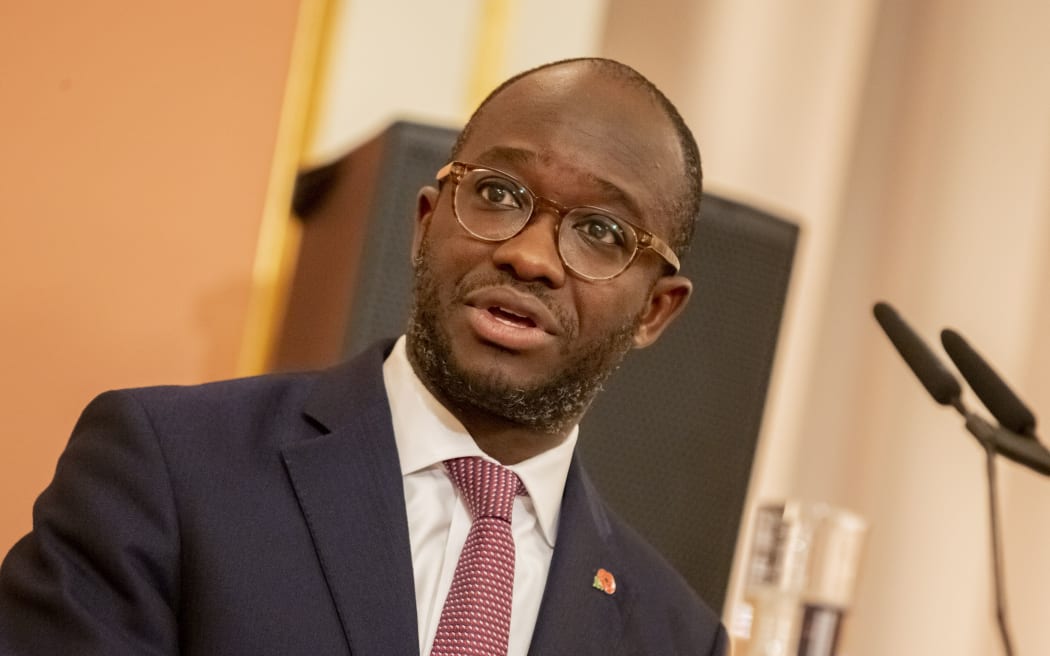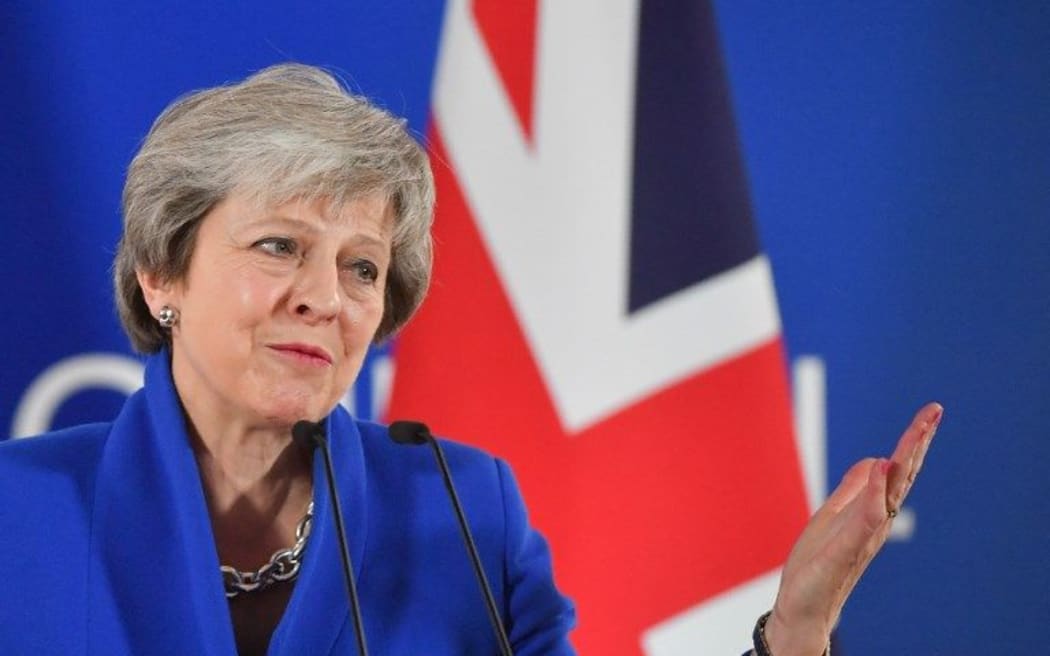A UK minister has resigned saying a row over involvement in the EU's Galileo satellite-navigation system exposes the PM's Brexit deal as "naive".

UK Science minister Sam Gyimah believes the EU "will hammer" Britain for many years. Photo: AFP
The United Kingdom had wanted to stay part of Galileo after Brexit, but the EU said it would be banned from the extra-secure elements of the programme.
Mrs May confirmed on Friday that the UK was pulling out of the project.
Science minister Sam Gyimah said the row was "a clarion call" and that any deal with Brussels would be "EU first".
The UK's interests "will be repeatedly and permanently hammered by the EU27 for many years to come", he added in a Facebook post setting out his reasons for resigning.
Mr Gyimah, who is the 10th minister to resign from the government since Mrs May set out her original proposals for leaving the EU at Chequers in July, also said he would be voting against the deal she had eventually negotiated with Brussels.
However, prominent Brexiteer and cabinet minister Michael Gove has defended Mrs May's plan, writing in the Daily Mail that leaving the EU is under "great threat" if the deal is rejected by MPs.
Security interests
Galileo is the EU's upcoming version of the US's GPS, which is used by millions of people around the world, and will be used by EU governments, citizens, military and industry.
Brussels had said that, as a result of Brexit, the UK would not be allowed immediate access to part of the system intended for use by government agencies, the armed forces and emergency responders once it came online in 2020.

UK Prime Minister Theresa May has come under intense scrutiny from her own government over the Brexit deal. Photo: AFP
But the UK, which has invested €1.4bn ($NZ2.3b) in the project, said access was vital to its military and security interests.
Mrs May has now said the British army will not use Galileo and the UK will instead explore options to build its own satellite-navigation system - having already set aside £92m ($170m) to look at how it can be done.
"I cannot let our armed services depend on a system we cannot be sure of," Mrs May said. "That would not be in our national interest."
'Falling apart'
Former Tory cabinet minister and campaigner for another referendum, Justine Greening, said Mr Gyimah was a "highly respected and capable minister" and praised him for not ruling out a second vote.
The Liberal Democrats' education spokeswoman, Layla Moran, said Mr Gyimah's exit showed the government was "falling apart", and that she had "seen at close quarters the devastating effect this botched Brexit will have on these important sectors".
In his Daily Mail article, Environment Secretary Mr Gove admitted the withdrawal agreement was not "perfect".
But he stuck by the prime minister, saying it "delivers in crucial ways which honour the vote to leave".
"Does it deliver 100 percent of what I wanted? No," he added. "But then we didn't win 100 percent of the vote on 23 June 2016.
"In politics, as in life, you can't always get everything that you want."
What is Galileo?
Many people's sat-navs and mobile location services currently run on a US military-based system called GPS - global positioning system - which uses satellites to pinpoint our locations. China and Russia also have satellite-navigation positioning systems.
In 1999, the European Union embarked on a plan to put together its own network of satellites, called Galileo, so it was not reliant on the US, Russian and Chinese systems.
The first satellites were put into orbit in 2013 and it is planned to be fully operational in 2020 with 30 satellites orbiting earth.
UK companies have built components for Galileo and one of the project's two Galileo Security Monitoring Centres was based in the UK, in Swanwick. The site is now being relocated to Spain.
The government said there should be no noticeable impact for the public from withdrawing from the project, as devices that already use Galileo, such as smartphones, will carry on doing so.
It says UK industry has earned about €1.15b ($1.9b) from the project but, when the BBC asked if any more money would be given back, a spokesman said the project was "part of the withdrawal agreement" and the UK had reached "a fair financial settlement with the EU".
- BBC

